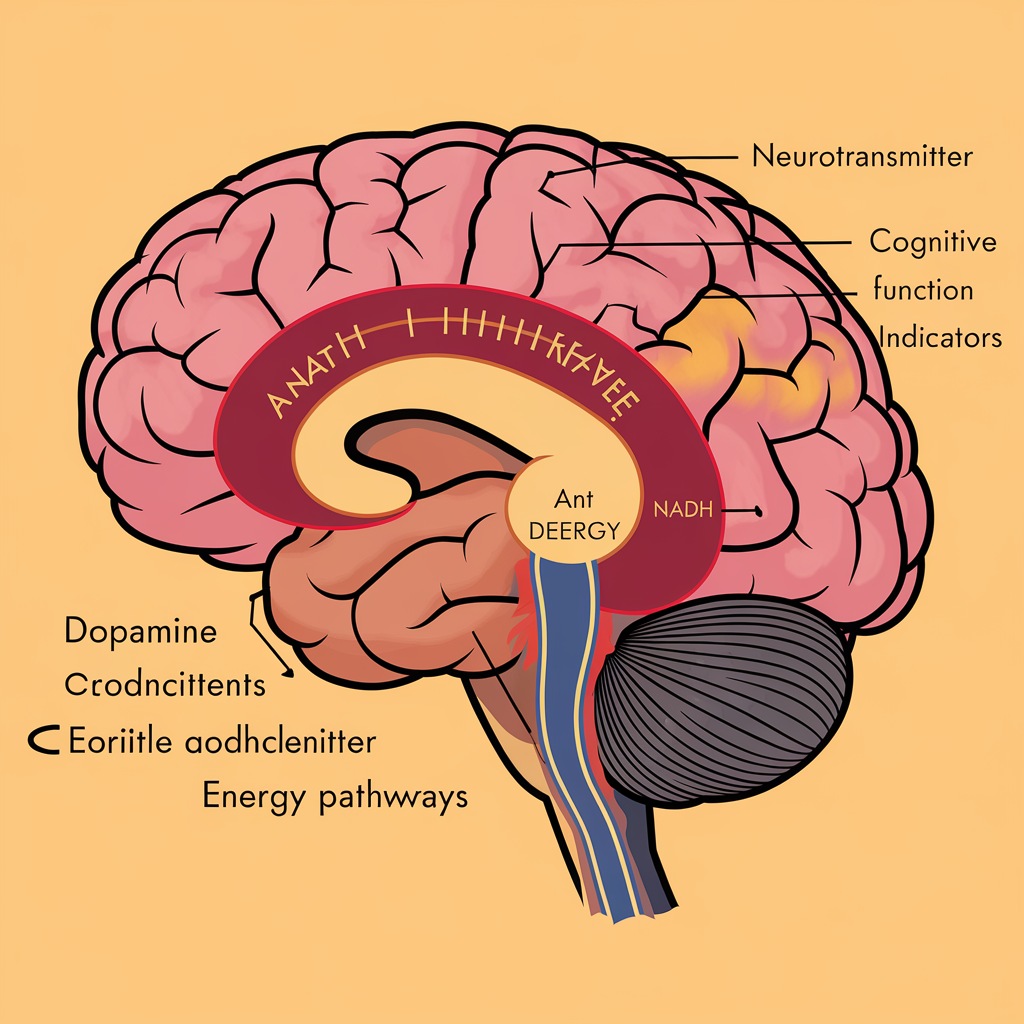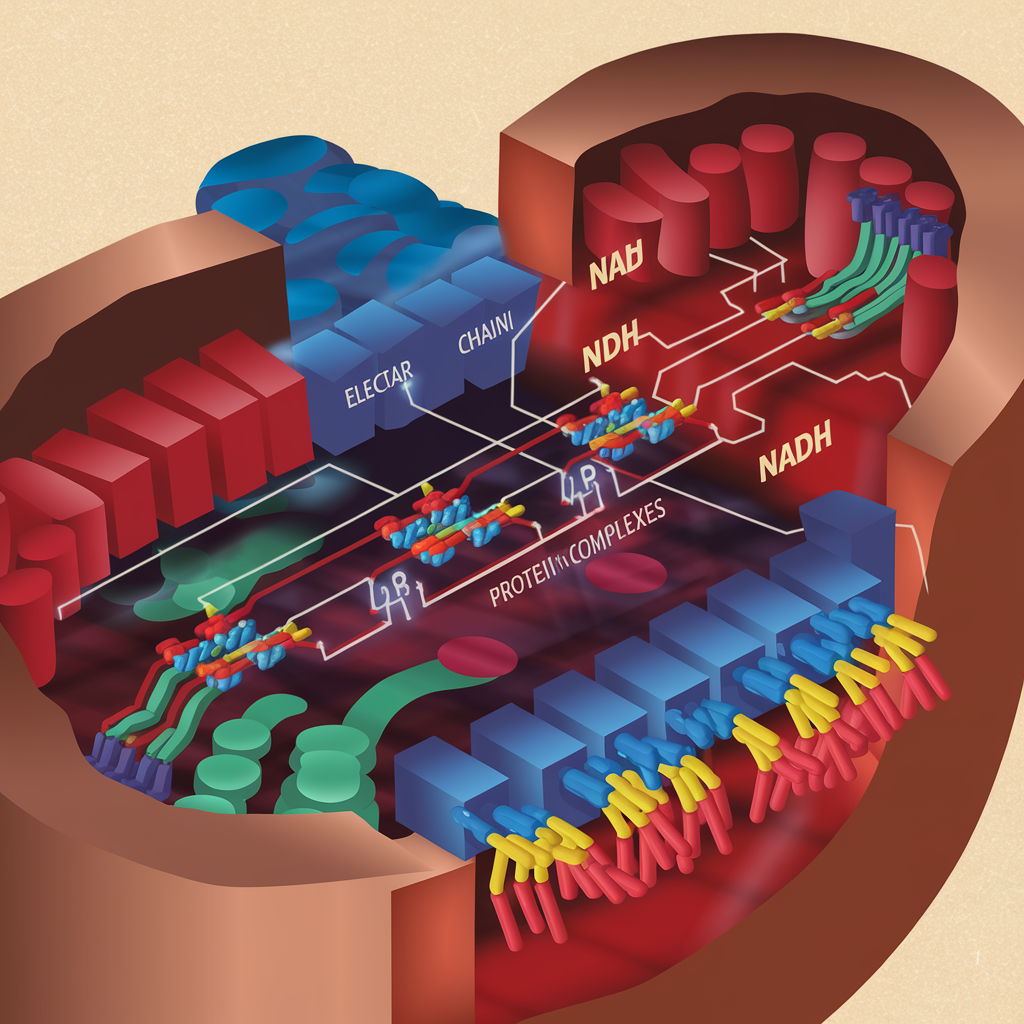NADH Supplements: Science-Backed Benefits for Energy & Brain Health
NADH, or Nicotinamide Adenine Dinucleotide + Hydrogen, is a naturally occurring coenzyme vital for cellular energy production. As interest in natural energy enhancers grows, NADH supplements have gained attention for their potential benefits for fatigue, cognitive function, and various health conditions. This comprehensive guide explores the science behind NADH, its evidence-based benefits, and everything you need to know before considering supplementation.
What is NADH and How Does It Work?
NADH serves as a critical component in the body’s energy production process. Derived from vitamin B3 (niacin), this coenzyme functions as an electron carrier in the mitochondria—the powerhouses of our cells. During cellular respiration, NADH donates electrons to the electron transport chain, facilitating the production of ATP (adenosine triphosphate), the primary energy currency used by all cells.
When NADH levels are optimal, energy production functions efficiently. However, factors like aging, stress, and certain health conditions may affect NADH levels, potentially impacting energy metabolism. This is where supplementation comes into consideration.

Top 5 Evidence-Based Benefits of NADH Supplements
1. Enhanced Cellular Energy Production
Research indicates that NADH supplementation may boost cellular energy levels by supporting mitochondrial function. A study published in the Journal of Nutritional Biochemistry found that NADH helps increase ATP production, potentially leading to improved energy levels and reduced fatigue.
2. Cognitive Function Support

NADH plays a crucial role in neurotransmitter production, including dopamine and norepinephrine, which are essential for cognitive function. Clinical studies suggest NADH supplements may enhance mental clarity, focus, and memory, particularly in individuals experiencing cognitive decline or brain fog.
3. Chronic Fatigue Syndrome Relief
Perhaps the most researched application for NADH supplements is in treating Chronic Fatigue Syndrome (CFS). A double-blind, placebo-controlled study published in the Annals of Allergy, Asthma & Immunology found that patients receiving 10mg of NADH daily reported significant improvements in fatigue symptoms compared to those taking a placebo.
4. Support for Parkinson’s Disease
NADH may offer promising support for individuals with Parkinson’s disease. Research suggests NADH supplementation could help increase dopamine production—a neurotransmitter typically deficient in Parkinson’s patients. While not a replacement for conventional treatment, preliminary studies indicate potential complementary benefits.
5. Athletic Performance Enhancement
Athletes may benefit from NADH’s role in energy metabolism. Studies have examined NADH’s effects on exercise performance, with some showing improved oxygen utilization and extended endurance. A study in the European Journal of Applied Physiology demonstrated that athletes taking NADH showed reduced reaction times and improved oxygen capacity during high-intensity exercise.

NADH for Chronic Fatigue: What Research Shows
Chronic fatigue represents one of the most promising applications for NADH supplementation. Multiple clinical trials have investigated its efficacy:
- A 12-week study found that 80% of CFS patients reported improvements with 10mg daily NADH supplementation
- Research published in the Journal of Chronic Fatigue Syndrome demonstrated significant quality of life improvements in patients taking NADH compared to placebo groups
- Long-term studies suggest sustained benefits with consistent NADH supplementation, with minimal side effects reported
While not all patients respond equally, these findings suggest NADH may offer meaningful relief for some individuals struggling with persistent fatigue.
How to Choose the Right NADH Supplement
The effectiveness of NADH supplements depends significantly on quality and formulation. Consider these factors when selecting a product:
Stabilized Formulations
NADH is naturally unstable and susceptible to degradation. Look for supplements utilizing stabilized formulations that protect the active compound from moisture, heat, and light exposure.
Delivery Method
NADH supplements come in various forms, including:
- Sublingual tablets (placed under the tongue for direct absorption)
- Enteric-coated capsules (protected from stomach acid degradation)
- Standard oral tablets
Research suggests sublingual and enteric-coated formulations may offer superior bioavailability compared to standard tablets.
Third-Party Testing
Quality control varies widely among supplement manufacturers. Choose products verified by independent third-party testing for purity, potency, and absence of contaminants.
Additional Supportive Ingredients
Some NADH supplements include complementary ingredients that may enhance effectiveness:
- CoQ10 (supports mitochondrial function)
- Ribose (aids ATP production)
- B vitamins (cofactors in energy metabolism)
These combinations may provide synergistic benefits for energy production.
Optimal NADH Dosage and Timing
Recommended Dosages
Clinical studies typically use dosages ranging from 5mg to 20mg daily, with 10mg being the most common effective dose. However, optimal dosing may vary based on individual factors and health conditions:
- For general energy support: 5-10mg daily
- For chronic fatigue syndrome: 10-20mg daily
- For cognitive support: 5-15mg daily
- For athletic performance: 10mg approximately 30-60 minutes before exercise
Best Time to Take NADH
For maximum benefit, NADH supplements are typically best taken:
- In the morning on an empty stomach
- At least 30 minutes before eating
- Early in the day to prevent potential sleep disruption
Consistency is key—regular daily supplementation appears more effective than intermittent use.
Potential Side Effects and Safety Precautions
NADH supplements are generally well-tolerated by most individuals. Clinical studies report minimal adverse effects, even with long-term use. However, some people may experience:
- Mild insomnia (particularly when taken later in the day)
- Temporary nervousness or jitteriness
- Digestive discomfort
Important Precautions
While generally safe, certain individuals should exercise caution:
- Pregnant or nursing women (insufficient safety data)
- Individuals with bipolar disorder (theoretical risk of triggering mania)
- People taking medications affecting dopamine levels
- Those with autoimmune conditions
Always consult a healthcare provider before beginning NADH supplementation, especially if you have existing health conditions or take medications.
NADH and Other Supplements: Potential Combinations
NADH may work synergistically with other supplements to enhance energy production:
- CoQ10: Another essential component of the electron transport chain
- Alpha-lipoic acid: Supports mitochondrial function and energy metabolism
- B complex vitamins: Cofactors in numerous energy-producing pathways
- PQQ (Pyrroloquinoline quinone): Promotes mitochondrial biogenesis
These combinations may offer enhanced benefits, though research on specific combinations remains limited.
Frequently Asked Questions About NADH Supplements
What is the best time to take NADH supplements?
NADH supplements are best taken in the morning on an empty stomach for optimal absorption and energy benefits throughout the day. This timing helps prevent potential sleep disruption that can occur when taken later in the day.
How long does it take for NADH supplements to work?
Individual responses vary. Some people report noticeable energy improvements within days, while others may require 2-4 weeks of consistent supplementation before experiencing significant benefits. For chronic conditions like CFS, studies suggest optimal results may take 4-8 weeks of regular use.
Can NADH supplements help with brain fog?
Research suggests NADH may help improve mental clarity and focus by supporting neurotransmitter production and cellular energy in the brain. Many users report improvements in concentration and cognitive function, particularly during mental fatigue.
Are NADH supplements safe for long-term use?
Clinical studies indicate NADH supplements are generally safe for long-term use. Research following participants for up to two years has shown minimal adverse effects with consistent daily supplementation. However, individual responses may vary.
How does NADH differ from NAD+ supplements?
While closely related, NADH (the reduced form) and NAD+ (the oxidized form) have different roles in the body. NADH specifically functions as an electron donor in energy production, while NAD+ serves as an electron acceptor. Both are important for cellular energy metabolism but may have somewhat different applications and benefits.
Conclusion: Is NADH Supplementation Right for You?
NADH supplements offer promising benefits for energy production, cognitive function, and specific health conditions like chronic fatigue syndrome. While research continues to evolve, existing evidence suggests potential value for many individuals seeking support for fatigue, brain function, and cellular energy.
Before starting any supplement regimen, consider consulting a healthcare provider, particularly if you have existing health conditions. When choosing NADH supplements, prioritize quality, stabilized formulations from reputable manufacturers.
With appropriate expectations and quality products, NADH supplementation may provide meaningful support for your energy, cognitive function, and overall wellbeing as part of a comprehensive health approach.
This article is for informational purposes only and does not constitute medical advice. Always consult a healthcare provider before beginning any supplement regimen.